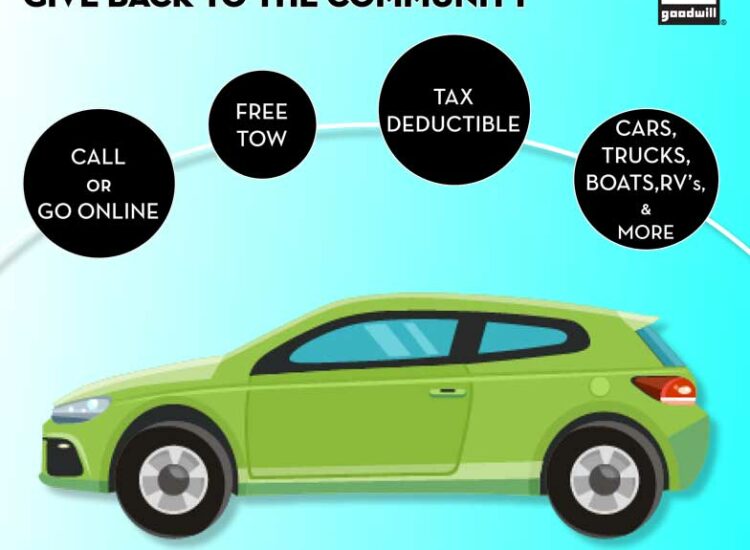Car donation is a form of charitable giving where an individual or organization donates their vehicle to a nonprofit organization. It’s a simple and effective way to support a cause you care about while also getting rid of an unwanted car. In this guide, we will explore the benefits of car donation and provide step-by-step instructions on how to donate your car.
Toc
Introduction to Car Donation

Car donation is a win-win situation for both individuals and charities. It allows you to support a cause you care about while also receiving potential tax benefits. By following the steps outlined in this guide, you can easily donate your car and make a positive impact on your community.
What is Car Donation?
Car donation involves giving a vehicle you no longer need to a charitable organization. These organizations either use the vehicle for their operations or sell it to fund their programs. It’s a simple yet impactful way to support causes you care about without making a significant financial commitment.
Why It Matters
Car donations can make a significant difference in communities and benefit the environment. Vehicles donated to charities can provide essential services to individuals and families in need, while also supporting various community programs. Environmentally, car donations promote responsible recycling, reducing waste, and conserving resources. By donating your car, you are contributing to a more sustainable and socially responsible world.
Why Donate Your Car?

There are several reasons why donating your car can be beneficial for both you and the charity receiving the donation.
1. Tax Deduction
One of the primary incentives for donating your car is the potential for a tax deduction. When you donate your vehicle to a qualified nonprofit organization, you may be eligible to deduct the fair market value of the car from your taxable income. This can lead to significant savings on your tax bill, especially if the vehicle is valued at a higher amount. It’s essential to keep detailed records of the donation, including any receipts or documentation provided by the charity, to ensure that you can claim your deduction accurately.
2. Alleviating Financial Responsibility
Owning an unwanted vehicle can come with certain financial burdens, such as insurance, maintenance, and registration costs. By donating your car, you not only rid yourself of these ongoing expenses but also turn a liability into an asset for a charitable organization. This can provide immediate relief and allow you to redirect your resources toward more beneficial uses.
3. Supporting a Cause
Car donation is a meaningful way to support causes that matter to you. Whether it’s a local animal shelter, a youth programme, or a healthcare initiative, your vehicle can become a vital resource that helps those organizations carry out their missions. Knowing that your donation contributes to a greater good can provide a sense of fulfillment and purpose.
How to Donate Your Car

If you’ve decided that car donation is the right choice for you, here’s how you can go about donating your vehicle.
1. Choose a Charity
The first step in donating your car is to select a charitable organization that aligns with your values and interests. Research various nonprofits to understand their missions and how they utilize donated vehicles. Look for established charities that are transparent about how they allocate funds and resources, ensuring that your contribution will have a meaningful impact. Websites like Charity Navigator and GuideStar can provide ratings and insights into different organizations, helping you make an informed choice.
2. Evaluate Your Vehicle
Once you have chosen a charity, evaluate your vehicle’s condition to determine its fair market value. This can impact the tax deduction you may receive, so it’s essential to accurately assess whether your car is running well or requires repairs. In most cases, charities can accept vehicles in a range of conditions, but knowing the specifics will aid in the donation process.
3. Contact the Charity
Reach out to the charity of your choice to initiate the donation process. Many organizations have specific protocols for accepting vehicle donations and may provide you with a donation form to fill out. Confirm their requirements, such as any necessary paperwork and the process for scheduling a pickup.
4. Transfer the Title
Before your car can be officially donated, you will need to transfer the title to the charity. This typically involves signing over the title to the organization and completing any necessary paperwork. Ensure that you keep a copy of the signed title for your records, as it may be needed for tax purposes.
5. Arrange for Pickup or Drop-off
Depending on the charity’s policies, you can either arrange for the charity to pick up your vehicle or drop it off at their location. If using a towing service, confirm that it is authorized by the charity. Make sure to remove all personal belongings from the vehicle before the transfer.
6. Obtain a Receipt
After your vehicle has been successfully donated, request a receipt from the charity. This documentation is crucial for claiming your tax deduction. The receipt should include details such as the vehicle’s identification number (VIN), donation date, and the charity’s information.
By following these steps, you can ensure a smooth and successful car donation experience while making a positive impact in your community.
Who Can Benefit from Car Donation?

Car donations can benefit a variety of individuals and organizations, including:
- Nonprofit organizations that rely on donated vehicles for their operations
- Individuals and families in need who may receive the donated car or its proceeds
- Communities and social causes supported by charities utilizing car donations to fund their programs
- The environment through responsible recycling and resource conservation efforts.
Individuals and Families in Need
Car donations can directly impact individuals and families facing transportation challenges. Many people in low-income situations lack reliable access to vehicles, which can hinder their ability to secure employment, attend school, or access essential services like healthcare. By donating your car, you provide these individuals with critical mobility solutions, helping them improve their quality of life. Furthermore, some charities refurbish donated vehicles and distribute them to those in need, ensuring that your contribution makes a tangible difference in someone’s daily life. The act of giving not only helps alleviate transportation barriers but also empowers families to seize new opportunities and strive towards achieving their goals.
Communities and Social Causes
Many charities rely on car donations to fund their operations and support their programs. Nonprofits in the education, healthcare, and social services sectors often use donated vehicles to transport goods, equipment, or people to various locations. By donating your car, you can contribute to these organizations’ efforts to improve communities’ welfare and address societal issues effectively. With fewer financial burdens, charities may redirect resources towards expanding their reach and impact, resulting in more significant progress towards their goals.
Case Studies and Success Stories

Car donations have made a significant impact on the lives of many individuals and communities. Here are some inspiring case studies and success stories to showcase how car donation can create meaningful change.
1. Helping Families in Need
In 2019, a nonprofit organization called Wheels for Wishes received a car donation from an individual who wanted to make a difference in their community. The donated car was refurbished and given to a single mother in need, providing her with reliable transportation to get to work and take her children to school. The impact of this donation extended beyond just the recipient’s family, as it also enabled the organization to allocate funds towards its educational programs for at-risk youth.
2. Supporting Environmental Conservation
The National Forest Foundation (NFF) accepts car donations to fund their efforts in preserving national forests and grasslands. In 2020, a donor contributed a used car that was sold through NFF’s partner charity program, generating over $7,000 for conservation projects such as reforestation and trail maintenance. This contribution helped the NFF continue its critical work while promoting sustainable practices for resource management.
3. Empowering Communities in Need
Goodwill Industries of Greater Detroit relies on car donations to support their job training and placement programs for individuals with barriers to employment. In 2018, a donated vehicle was refurbished and sold at an auction, resulting in $9,000 that directly supported Goodwill’s mission. The funds allowed the organization to expand its workforce development initiatives and provide more opportunities for community members facing economic challenges.
Making a Difference

As you can see from these examples, car donations have a significant impact on society. By donating your vehicle, you are not only getting rid of an old or unwanted car, but you are also helping make a positive change in the world. Whether it’s providing transportation for those in need, supporting important social causes, or promoting responsible resource management, your car donation can create a meaningful difference and leave a lasting impact on individuals and communities. Consider donating your car today and make a positive change in someone’s life. Remember to follow these steps to ensure a successful donation experience:
Research Reputable Charities
Before making a donation, it is essential to research and identify reputable charities that accept car donations. Look for organizations with established track records, positive reviews, and transparency in their operations. Websites such as GuideStar and Charity Navigator can help you evaluate charities based on their financial health, accountability, and effectiveness. Additionally, consider contacting the charity to ask about their specific programs and how car donations are utilized, ensuring your contribution aligns with your values and goals for community support.
Understand the Requirements and Processes Involved in Car Donation
Before proceeding with a car donation, it’s crucial to understand the specific requirements and processes involved. Most charities will require you to have the car title in your name with no liens against it, and you may need to sign over the title to the organization upon donation. Additionally, some states have particular regulations regarding vehicle transfers, so it’s important to check local laws that may require the completion of certain forms or notifications to the Department of Motor Vehicles (DMV). Make sure to gather all necessary documentation ahead of time to streamline the donation process and avoid any delays.
Prepare Your Vehicle
While it’s not mandatory to make your car look brand new, taking some time to clean it and ensure it’s in good working condition can enhance the donation experience. Removing personal belongings, having any maintenance issues addressed, and providing any service records can provide the charity with useful information about the vehicle’s history. Furthermore, if you wish to receive a larger tax deduction, consider having the car appraised before donation, as some organizations may use this as a basis for its market value.
Schedule the Donation Pickup
Most charities offer pickup services for donated vehicles, which can be very convenient. Once you have selected a charity and prepared your vehicle, reach out to them to schedule a pickup. Be sure to confirm all details, including the time, location, and any necessary paperwork that needs to be completed on the day of pickup. In many cases, the charity will provide you with a receipt at the time of pickup, which is essential for tax purposes.
Tax Deductions and Benefits
Car donations can provide significant tax benefits, often allowing donors to deduct the fair market value of the vehicle from their taxable income. To ensure you maximize your tax deduction, keep accurate records of the donation, including the receipt provided by the charity. Consult with a tax professional to better understand how car donations impact your individual tax situation and to ensure compliance with IRS guidelines. Remember, the greater the impact your donation can make in the community, the more rewarding your contribution will be.
Conclusion
In conclusion, donating your car is more than just a way to rid yourself of an unwanted vehicle; it’s an opportunity to make a profound difference in the lives of others. Charitable organisations rely on vehicle donations to fund various initiatives aimed at supporting those in need and fostering community development. Whether you aim to assist individuals in overcoming financial barriers, contribute to environmental conservation efforts, or bolster job training programmes, your donation can catalyse positive change.
So, if you have a vehicle that no longer serves you, consider the lasting impact it can have through a charitable donation. Not only will you be making a significant contribution to your community, but you will also experience the personal satisfaction of knowing that your generosity is making a difference. Start your car donation journey today, and together we can create a brighter future for those who need it most.
For more information on how to donate a car, visit CharityNavigator, the IRS, and Goodwill Automotive.








